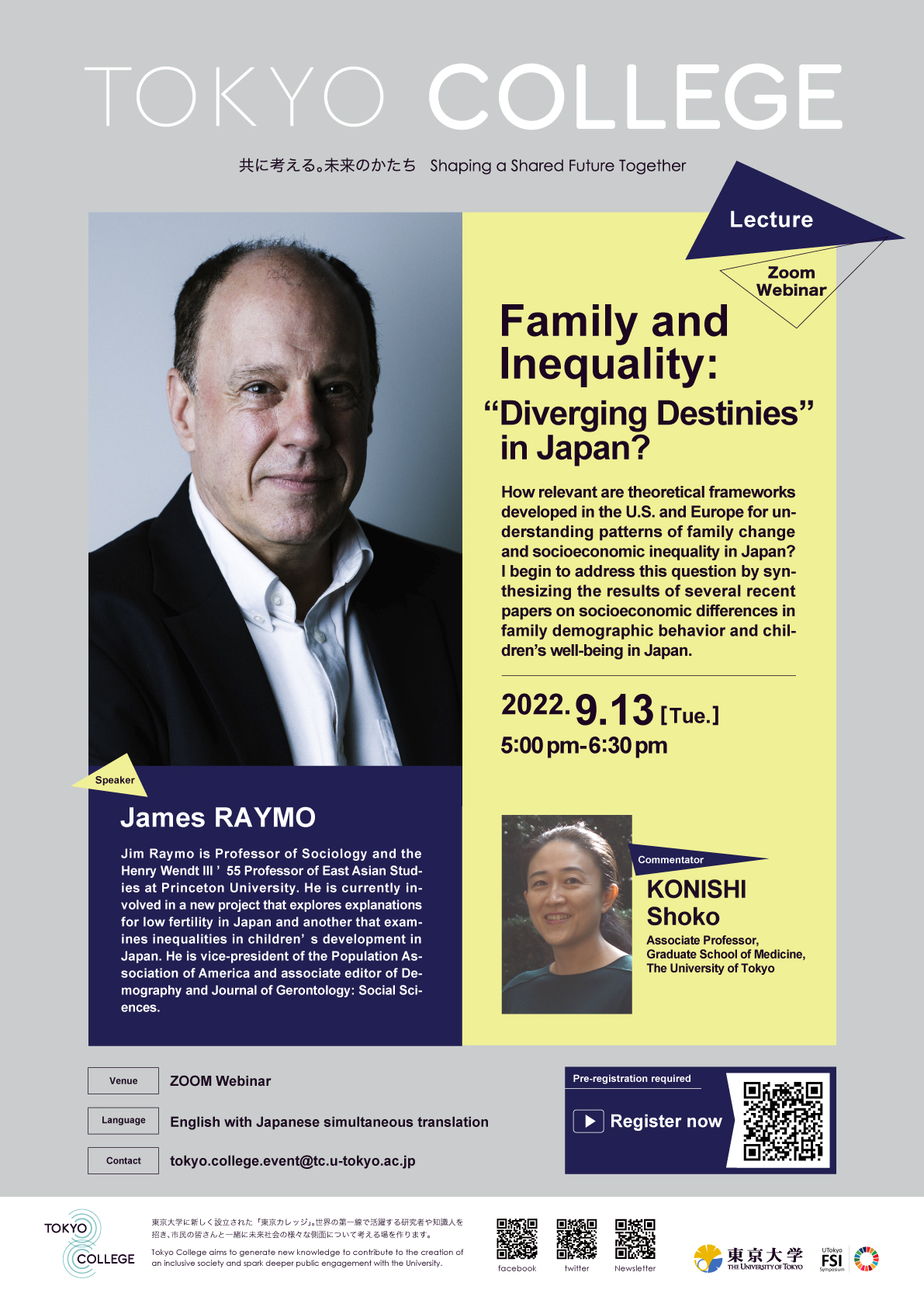Family and Inequality: “Diverging Destinies” in Japan? Lecture by Prof. James RAYMO

| Date(s) | Tuesday, 13 September 2022, 5:00-6:30pm |
|---|---|
| Venue |
Zoom Webinar(Register) |
| Registration | Pre-registration required |
| Language | English (English-Japanese simultaneous translation available) |
| Abstract |
“Diverging destinies” is a term used by family demographers and sociologists to describe growing socioeconomic differentials in family behavior. Drawing primarily on evidence from the U.S., research on diverging destinies has demonstrated that those at the lower end of the socioeconomic spectrum are increasingly engaging in family behaviors that are associated with reduction in the resources available to their children (e.g., nonmarital childbearing) while those at the upper end of the spectrum are engaging in family behaviors associated with increased resources (e.g., stable marriage). This pattern of family bifurcation has potentially important implications for inequality in opportunities for success across generations. Despite tremendous interest in both family change and growing socioeconomic inequality in Japan, efforts to link these trends are limited. In this talk, I summarize the results of several recent papers (both published and in progress) on socioeconomic differences in family demographic behavior and children’s well-being in Japan. In general, the findings of these studies show patterns of family bifurcation consistent with predictions of the diverging destinies framework, but of a magnitude that is less pronounced than observed in the U.S. Among the most pronounced differences in Japan are a strong negative educational gradient in divorce and substantial differences in the well-being of children in single-mother and two-parent families. In thinking about the relevance of diverging destinies in Japan, I stress the theoretical and empirical value of considering intergenerational family relationships, gender inequality, and the changing economic environment. |
| Program |
Lecture:James RAYMO(Professor, Princeton University) Comment:KONISHI Shoko(Associate Professor, Graduate School of Medicine, The University of Tokyo) Q&A |
| Speaker Profile |
James RAYMO is Professor of Sociology and the Henry Wendt III ’55 Professor of East Asian Studies at Princeton University. He is currently involved in a new project that explores explanations for low fertility in Japan and another that examines inequalities in children’s development in Japan. He is vice-president of the Population Association of America and associate editor of Demography and Journal of Gerontology: Social Sciences.
|
| Organized by | Tokyo College, The University of Tokyo |
| Contact | tokyo.college.event@tc.u-tokyo.ac.jp |















